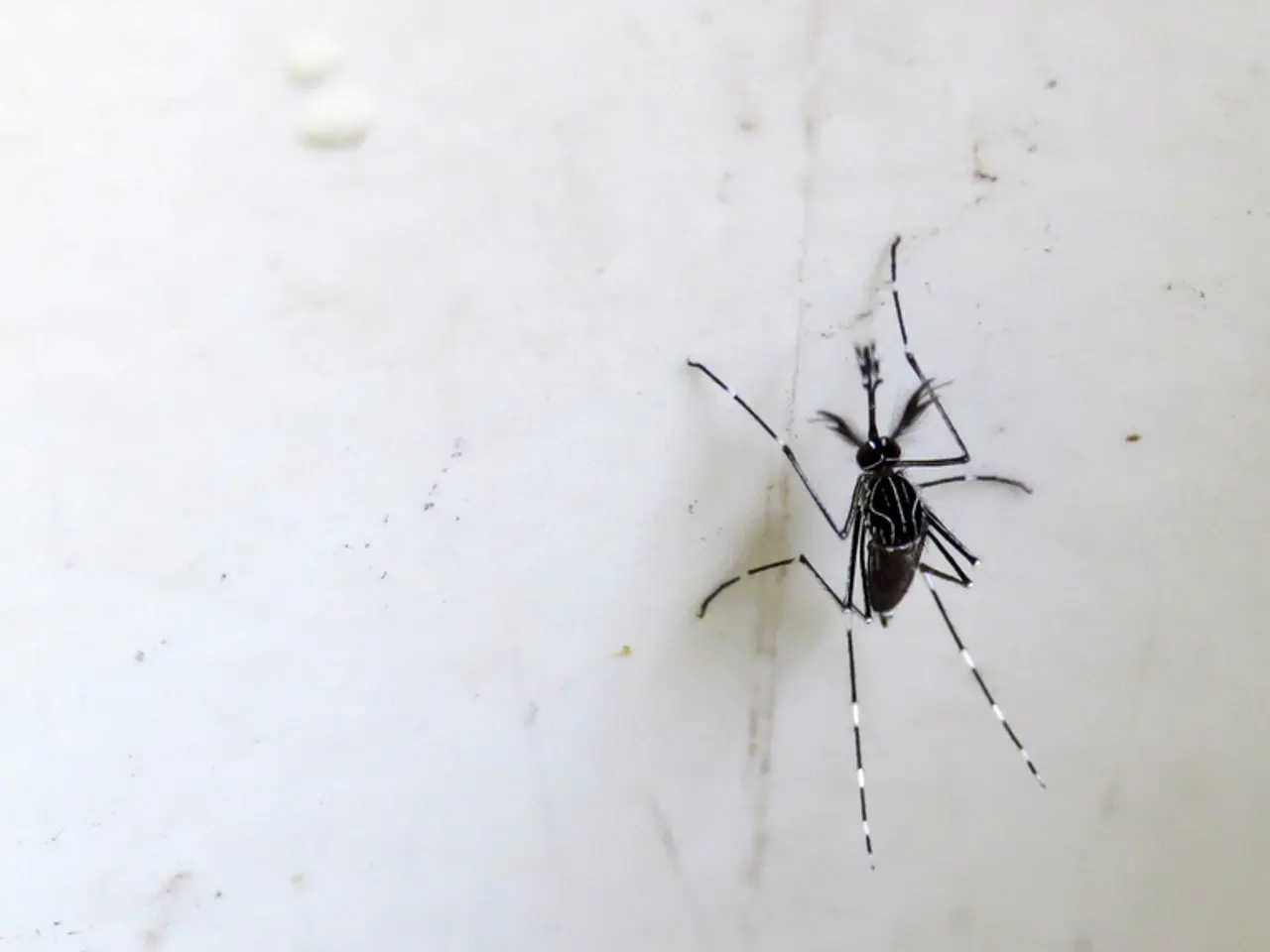Increase in Tick Infestation in Biysk City During the Current Epidemiological Season: Updated Cases and Preventive Measures
Revised Overview
Over 500 inhabitants of Altai Territory have suffered tick bites within the past week
Biysk city continues to experience a significant rise in tick infestations during the current epidemiological season, with concerns growing regarding the risk of tick-borne diseases such as Lyme disease, tick-borne encephalitis (TBE), and other infections. Authorities and health organizations are actively monitoring the situation and implementing preventive measures to protect the population.
Updated Epidemiological Situation
- Intensified Tick Activity: The current situation indicates an intense increase in tick activity, as evidenced by the rising number of cases.
- Incidence of Tick-Borne Diseases: Local healthcare facilities have reported a higher number of patients presenting with symptoms consistent with tick-borne illnesses, including fever, rash, and neurological symptoms.
- Demographics Affected: Both rural residents and city dwellers engaging in outdoor activities, such as hiking and gardening, have been affected.
- Ticks Species: The dominant species identified are Ixodes persulcatus (Taiga tick), known to carry tick-borne encephalitis virus and Borrelia burgdorferi (the agent of Lyme disease).
- Infection Rates: In 16% of the ticks removed from affected individuals, the agent of Lyme disease was found, and 6.3% of the cases also tested positive for the tick-borne encephalitis virus.
New Developments
- First Case of the Season: The first case of tick bite in the current epidemiological season was recorded on March 21.
- Spread of Infestation: From the start of the season to April 30, there was a 124.2% increase in tick bite cases compared to the first week.
- Regional Comparison: The number of tick bite cases in the Altai region since the start of the season is 2.8 times higher than the number of cases in the same period last year. In Barnaul, 376 cases of tick bites have been registered since the beginning of the epidemiological season.
Preventive Measures and Recommendations
- Public Awareness Campaigns: Dissemination of information through media, schools, and community centers about the risks of tick bites and how to avoid them.
- Personal Protective Measures: Encouraging people to wear long sleeves and pants, use insect repellent containing DEET or permethrin, and conduct regular tick checks after outdoor activities.
- Environmental Controls: Clearing tall grasses and brush in public parks and recreational areas; managing wildlife reservoirs that support tick populations.
- Tick Surveillance: Ongoing monitoring of tick densities and testing ticks for pathogens to assess risk levels.
- Vaccination: Promotion of TBE vaccination for at-risk populations where applicable.
- Prompt Medical Attention: Advising residents to seek timely medical care if bitten by ticks, especially if symptoms like fever, rash, or joint pain develop.
Conclusion
The current epidemiological season in Biysk city has revealed an alarming increase in tick infestations accompanied by a rise in tick-borne disease cases. Continued vigilance, public education, and integrated preventive strategies are essential to mitigate risks and protect public health in the region. The danger of being bitten by a tick will persist throughout the warm season, making it crucial for individuals to stay informed and take necessary precautions.
- In light of increased tick infestations, there is a growing focus on addressing chronic diseases and mental health concerns associated with medical-conditions such as Lyme disease and tick-borne encephalitis.
- Integrating therapies-and-treatments for these diseases into the health-and-wellness regimen can help manage symptoms and lower the risk of long-term complications.
- With neurological disorders like Lyme disease potentially causing memory loss and learning difficulties, it is crucial to analyze alternatives such as CBD oil to mitigate side effects of conventional treatments.
- Skin-care is also essential while dealing with tick infestations, ensuring removal of ticks correctly to avoid further complications or the transmission of infections.
- Nutrition plays an important role in maintaining a strong immune system, making it vital to incorporate immune-boosting foods in one's diet during the tick season.
- Medicare programs for elderly citizens should consider covering preventive measures and treatments related to tick-borne illnesses to ensure their safety and overall well-being.




